
For John Folkes, it all began with a simple command, and a blinding flash. It was September 1956, and he was flying 18,000ft over Maralinga, Australia, secured in his seat by a single lap and shoulder strap, when a 15 kiloton atomic device – as powerful as the weapon that had devastated Hiroshima a decade before – was detonated over the desert plains below.
Two days earlier, the 19-year-old had been told that his job was to head directly into the mushroom cloud and collect a sample of the radiation released by the blast. The flash blazed beneath him, forming an image that would terrorise Folkes’s dreams for the remainder of his life: it was “an inferno”, he recalls, describing “crimson and black smoke billowing up towards us”.
“The cloud was rising, it was coming up faster than we expected, but there was no turning round, no brakes on a plane. That’s when I thought ‘We’re not going to make it.’”
They sped up. Suddenly, all the gauges in the cockpit were spinning out of control. Folkes shared a look with the pilot. “No more than four seconds later, we were hit with this enormous shockwave, which flipped the aircraft over on its back, leaving me suspended in the air on these straps.” Unfathomably, they made it safely to the ground – “By the hand of God,” says Folkes, who is now 89 and lives in Thanet. The moment he stepped off the plane, his hands began violently shaking, and they haven’t stopped since.
Folkes was working as part of Operation Buffalo, carried out by the UK’s Atomic Weapons Establishment. He was just one of thousands of young men whose lives were treated as little more than collateral damage in Britain’s race to become a global nuclear power.
This story is from the November 12, 2024 edition of The Independent.
Start your 7-day Magzter GOLD free trial to access thousands of curated premium stories, and 9,000+ magazines and newspapers.
Already a subscriber ? Sign In
This story is from the November 12, 2024 edition of The Independent.
Start your 7-day Magzter GOLD free trial to access thousands of curated premium stories, and 9,000+ magazines and newspapers.
Already a subscriber? Sign In

Track queen Hodgkinson races towards another prize
Lawrence Ostlere on why the 800m Olympic champion is favourite to win the BBC's Sports Personality of the Year

New year, new City? Pep's crisis demands an overhaul
It was neither the most extreme nor most expensive piece of scrambled thinking by anyone of a Manchester City persuasion.

Fans get 'Battle of Britain' in tough Euro 2025 draw
Holders England and debutants Wales are joined by France and the Netherlands in Group D

Late drama as Cherries and West Ham share the points
The media giant is behind films including the Paddington franchise, Back to Black and Love Actually through its studio business, StudioCanal. London’s stock market has seen several companies move their primary listings abroad, and a raft of listed firms taken private following acquisitions.
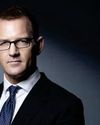
The 'Czech Sphinx' is just what the Royal Mail needs
Controversial as the deal may be, Daniel Kretinsky might be the only man with a realistic prospect of fixing the company, writes James Moore but he is still taking a significant risk
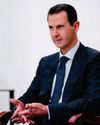
Assad wanted to stay and keep fighting, he claims
Ousted Syrian leader Bashar al-Assad said that he wanted to stay in the country after rebels captured the capital, but the Russian military evacuated him from their base in western Syria after it came under attack.
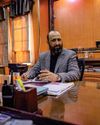
'In the last week, there were no attempts to kill anyone'
Sitting in the police headquarters of Homs, in an office that, until last week, was run by the feared intelligence network of Bashar al-Assad, Alaa Omran is holding court.

Germany on course to hold snap election in February
German chancellor Olaf Scholz has lost a confidence vote, putting the European Union’s most populous member and biggest economy on course to hold an early election in late February.
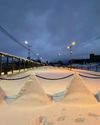
The silent war taking place on Nato's eastern fringes
Narva, on Estonia’s border with Russia, has been targeted by the Kremlin since 2022. Millie Cooke talks to residents and discovers that anti-Russian feeling is by no means universal
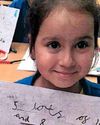
New homeschooling laws after murder of Sara Sharif
The right to home education will no longer be automatic for parents of the most at-risk children, under proposed legislation being unveiled in parliament today.